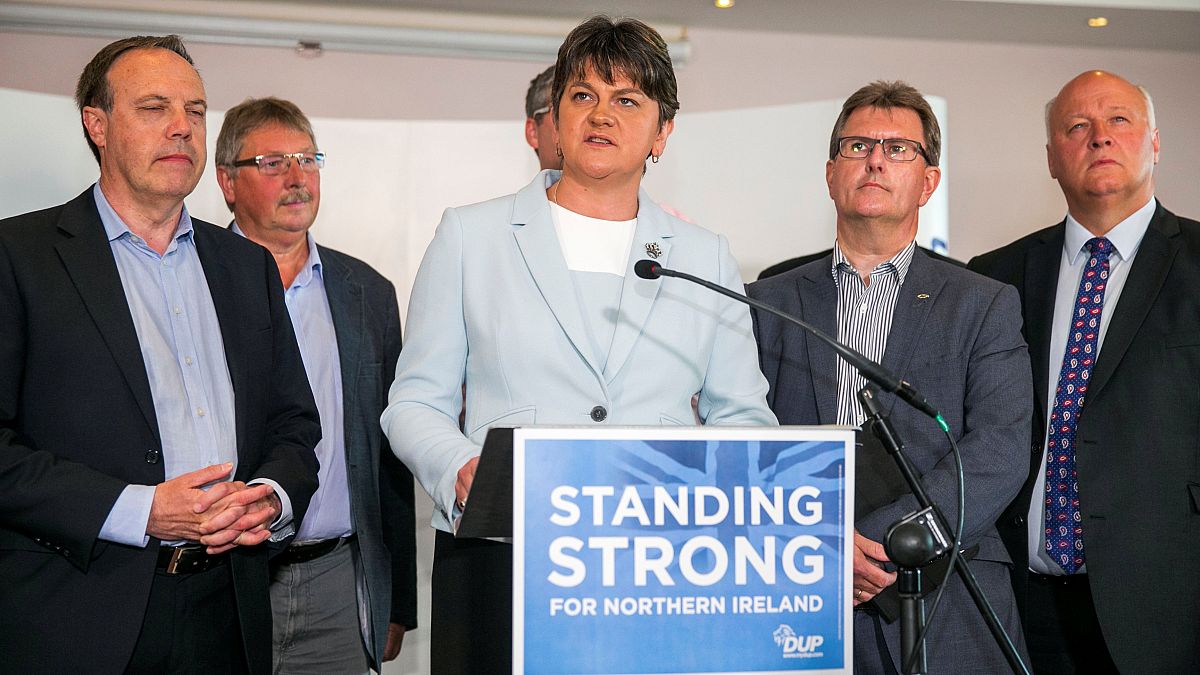When polls were recently forecasting a landslide win for Theresa May, few people would have paid much attention to the Democratic Unionist Party (DUP).
The party, which wants Northern Ireland to keep links with the United Kingdom, was set for another minor role in British politics.
But suddenly, with the Conservatives lacking a majority and scrambling to form a government, the DUP have emerged as key players in May’s bid to cling onto power.
Who is the DUP?
The party emerged from the troubles in Northern Ireland and stand for staying in union with London, rather than join up with the rest of Ireland.
Some remember the DUP as the political vehicle of Ian Paisley, the firebrand Protestant cleric who once heckled the Pope himself, calling him the antichrist.
They won two more seats in Thursday’s election, meaning they will now have 10 MPs in Westminster.
That puts them in a powerful position: if they enter into some kind of deal with the Conservatives, it would be enough to give May a majority, albeit a slim one.
What does the DUP stand for politically?
The DUP is a socially-conservative party: it opposes same-sex marriage and wants to maintain the country’s strict anti-abortion laws.
It recently backed the right of a Belfast bakery to refuse to make a cake with a gay rights slogan and proposed a law to allow religious business people to refuse to serve people where that would conflict with their religious beliefs.
Where does it stand on Brexit?
Like its potential partners in Westminster, the DUP is pro-Brexit, although there is one key caveat to this.
Most notably around its land border with the Republic of Ireland (ROI).
After Brexit, the border between Northern Ireland and its southern neighbours becomes an EU frontier, likely to include checkpoints and enforcement.
The DUP is against a so-called hard border like this. That is because the return of a physical border – removed when a peace deal was struck in 1998 – could impinge on trade between the north and south and serve as an unwelcome reminder of the island’s violent past.
While it supports Brexit, it still wants a free trade and customs agreement with the EU. It also wants to be able to do free trade deals with the rest of the world.
What is the DUP’s record in power like?
DUP leader Arlene Foster was the first minister in Stormont, Northern Ireland’s devolved seat of government.
Her leadership has come under scrutiny amid the controversy surrounding the Renewable Heat Incentive Deal, a botched energy scheme that could cost taxpayers 400m GBP (454m euros)
The furore surrounding the deal saw power-sharing in Northern Ireland collapse, leaving the region without a government.
So DUP politicians, if they do end up sitting down with May’s Conservatives, could be negotiating power-sharing in two parliaments simultaneously.


